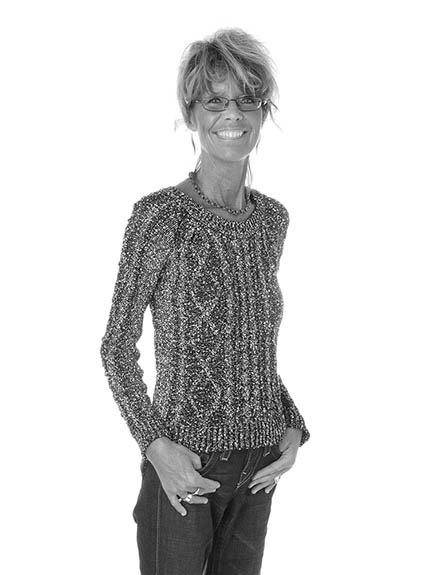| marie-hélène le ny |
|
photographist |

|
“I
grew up in Copenhagen where my mother used to take me to the
Geological Museum. I loved this old, beautiful museum and its
rock, mineral, and fossil collections; I was reading a lot about
everything in the natural world. Much later, after having studied
the different disciplines of geology at university, I really
liked geochemistry and following my instincts ended up becoming
an isotope geochemist. Isotope geochemists work, among other
things, with the natural radioactivity of rocks, minerals, and
meteorites. Using complex and sophisticated chemical techniques
in a clean laboratory I can isolate elements of interest to the
geological problems in question. These are both radioactive and
radiogenic (produced by the radioactive decay) which, owing to
the constant nature of radioactive decay, record the passage
of time. In addition to dating events, these elements also trace
geological and physical processes and the origins of the rocks
and meteorites being studied. By measuring the isotopic compositions
of radioactive and radiogenic elements using mass spectrometry,
It is possible to date and trace the history of the Solar System
and the Earth as well as other terrestrial planets, such as the
Moon, Mars, and some asteroids, since the beginning of time. Curiosity and knowledge drive my research. The big questions such as the age of the Solar System, the age of the Earth, the Moon, and Mars, the processes taking place in the interior of our planet, how and when its core formed, when the first continents arose, and from there questions linked directly to the origin of life… these questions and many more fundamental to science and humanity are fascinating and make us dream but do not attract much funding... Two years ago I was elected Fellow of the American Geophysical Union. This does not happen to many women despite their often outstanding professional merits. The competition is fierce and difficult for women in fields dominated by men. To be successful you must have integrity, be excited by your work, and work hard. It is therefore key to choose a profession about which you are passionate. To love your work is a great chance in life and increases the odds of succeeding, not to mention the satisfaction of making meaningful contributions to fundamental science.” |
||
|
Janne Blichert-Toft Director of Research - CNRS - ENS de Lyon |
|||
|
|
|
|